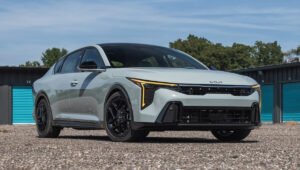In a move that could reshape the future of clean transportation in America, the U.S. Senate has voted to block California Electric Car bold plan to ban the sale of new gasoline-only vehicles by 2035. For many Californians and environmental advocates, this decision feels like a step backward in the fight against climate change and now all eyes are on President Trump, who holds the final say.
A Shocking Turn in a High Stakes Debate

In 2022, the state’s Air Resources Board announced an ambitious goal: by 2035, all new passenger cars sold in California Electric Car would need to be electric or plug-in hybrid. The Environmental Protection Agency (EPA) granted the state a waiver to move forward something it’s done before under the Clean Air Act.
What at Stake for Everyday Americans
With gas prices fluctuating and extreme weather events becoming more common, many people were looking toward electric vehicles (EVs) as a solution. This Senate vote feels like a detour from that path, creating uncertainty for carmakers, consumers, and communities working toward sustainability.
A Nation Waiting on One Signature
Now, it all comes down to President Trump. If he signs the measure into law, it will nullify California Electric Car authority to implement its EV sales ban and strict emission rules. This would mark a major policy shift, especially after years of progress toward decarbonizing the transportation sector.
The Road Ahead

Regardless of what happens next, this debate has shown that the path to a greener future won’t be easy. It requires tough conversations, bold leadership, and most importantly public support. People want clean air, affordable energy, and a healthy planet for future generations. No Senate vote can erase that hope.
Disclaimer: This article is based on current events as of May 22, 2025. It does not represent an endorsement or opposition to any political figure or party. The content is intended solely for informational and educational purposes.
Also read:
2026 Toyota RAV4: 8 Hybrid-Only Upgrades You Can’t Miss
Volvo CEO: Customers Must Cover Tariff Costs That Impact Features and Price












